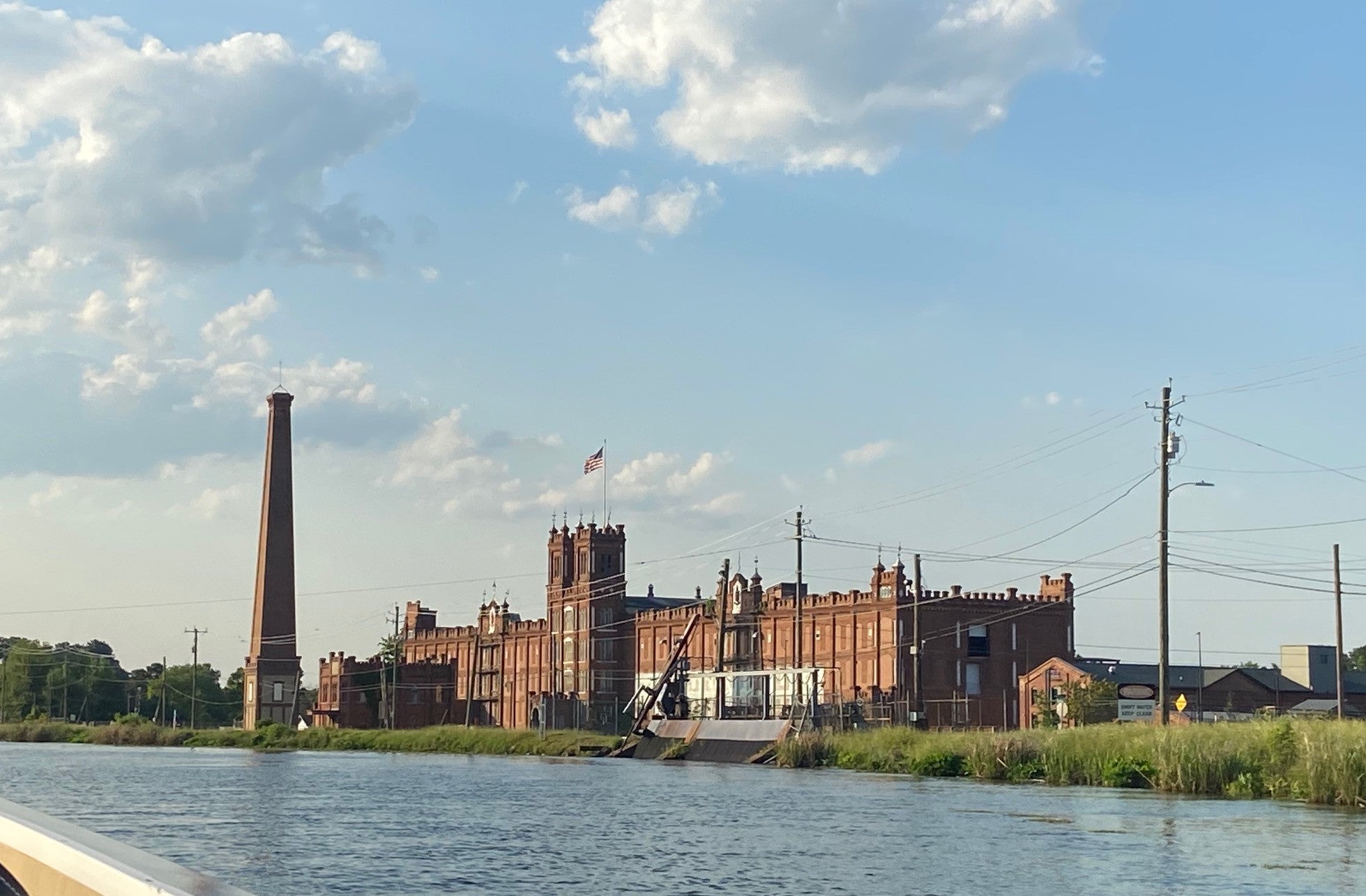There’s a Dutch saying that when translated in English is “one man’s death is another man’s bread.”
And in some ways, that holds true where Augusta is concerned. It can be said that the city of Augusta and the CSRA became a regional powerhouse through the manufacture of bullets and bombs.
The idea that Augusta would become a military munitions center was the idea of none other than President George Washington, according to military historian Hubert van Tuyll. When Washington visited Augusta in 1791, he found the frontier town to be the perfect spot as it was far enough inland to never suffer a naval bombardment of any consequence and was situated near a river where the munitions could easily be transported to the coast.
Records indicate the Augusta Arsenal was under construction in 1819 and is mentioned when President James Monroe visited the city.
Originally, the arsenal was built on the banks of the Savannah River; however, that location proved to be problematic. According to van Tuyll, not long after the facility was completed, the commander of the arsenal went on leave and when he returned, he found all of the 25 soldiers there dead, ostensibly from an outbreak of Typhoid fever.
It is said that the buildings were dismantled brick by brick and hauled up the hill to the area that would eventually become known as Summerville.
MORE: Augusta Commission approves funding for Augusta Boxing Club
The Augusta Arsenal is also unique in that it has served two separate countries. In 1861, as the Civil War began, federal officials from the United States surrendered to the facility to officials from the Confederacy.
One fact that put the Confederacy at a severe disadvantage from the start was the lack of industry as most of the South was agrarian. Augusta, though, was different. The late historian Ed Cashin notes in his book, “The Story of Augusta,” that the city became known as “the Lowell of the South,” in reference to Lowell, Massachusetts, because of its seven mile industrial canal.
It made good sense to Confederate President Jefferson Davis to expand the Arsenal and create the Confederate Powderworks on the banks of the Augusta Canal. George Washington Rains, the man who commanded the powderworks and the arsenal during the war once remarked, “the South did not lose the war for want of gunpowder.”
That was sort of true, Augusta certainly made enough of the material, but according to van Tuyll, getting it to the front lines was a bit of a challenge as the railroad gauge sizes varied throughout the region, so a single train could not go from one end of the Confederacy to the other.
All that is left of the Confederate Powderworks is a lone chimney. The Augusta Arsenal functioned through World War II, staffed by many a “Rosie the Riveter,” as the Summerville neighborhood continued to grow around it. Curiously, no one seemed to mind building expensive homes next to a facility that could potentially explode.
As the nuclear age and Cold War began, the arsenal became more and more obsolete; it was abandoned in 1955. Two years later, the complex was purchased by the Academy of Richmond County and began its new life as the Junior College of Augusta, now Augusta University.
MORE: New administration appointed in Columbia County School District in special meeting
As bullet production ramped down in the CSRA, bomb production amped up across the river. In 1952, Savannah River Site, better known by the locals as the “Bumb Plant,” went online making heavy water for nuclear weapons. By the end of the decade, the plant was in full operation making enough bombs to completely destroy life on the planet.
Savannah River Site remained active until the end of the Cold War in 1991 when the USSR collapsed and the immediate threat of thermonuclear war lessened. Today much of the 318 square mile site is used for nuclear chemical storage and is also home to the Savannah River Ecology Lab which conducts environmental studies.
The bomb plants in the CSRA closing does not mean that Augusta hasn’t continued its association with warfare; if fact, the city may be even closer to the front lines than ever before.
Fort Gordon survived the Base Relocation And Closure program started by Congress in the early 1990s and has grown substantially with the relocation of the NSA and US Army Cyber Command. It is said, but not officially confirmed, that a drone sortie can be remotely conducted by a soldier sitting at a nondescript desk in a nondescript building right here in Augusta, Ga.
…And that is something you might not have known.
Anna Virella is the newsroom coordinator with The Augusta Press. Reach her at anna@theaugustapress.com.
Scott Hudson is the senior reporter for The Augusta Press. Reach him at scott@theaugustapress.com.











